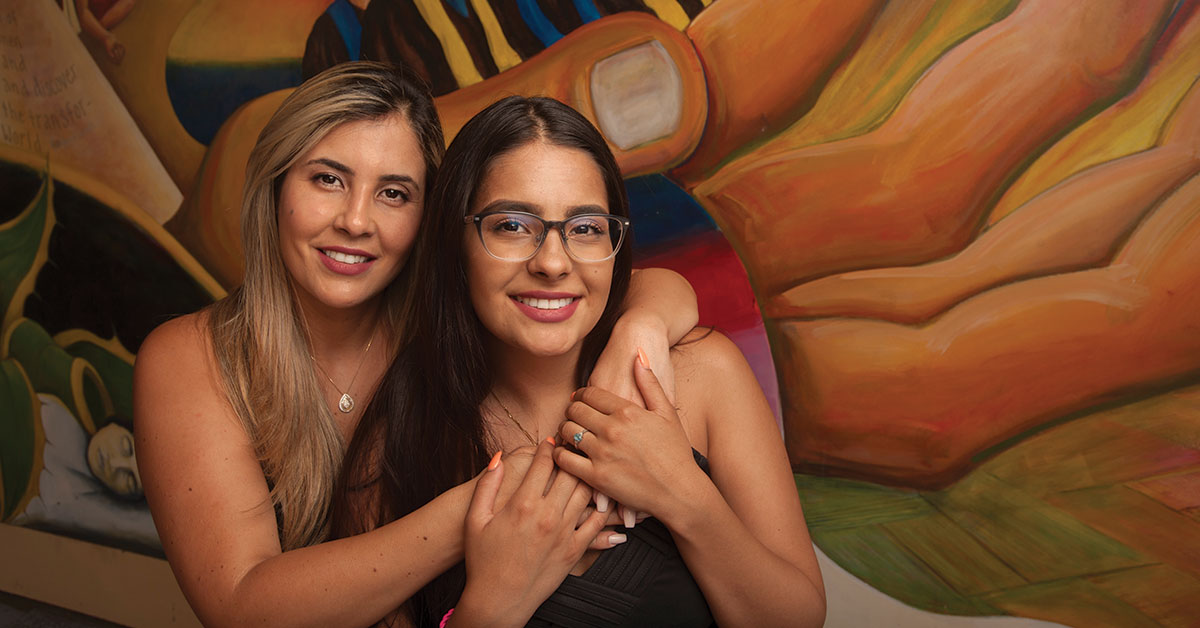
When Nagela Castro came to the United States 19 years ago, she had to leave her 1-year-old daughter in Brazil with her mother. She cleaned houses, learned English and tried repeatedly to bring her daughter to her new home.
They reunited four years later, and their struggles with the immigration process inspired them to help others in similar situations.
This fall, Castro joined her daughter, Amanda De Castro, at UC Davis. They’re both juniors, both studying international relations. De Castro plans to work in immigration law, while her mother said she wants to continue to informally help others in her community.
Castro received her green card two years ago, and De Castro is working toward hers while receiving protection from the Deferred Action for Childhood Arrivals (DACA) policy. They’ve become informal experts in their Bay Area community, sharing advice and referring friends to their immigration attorney.
“Most people don’t know their rights,” Castro said. “Because I didn’t know, I spent many years struggling. Now I help others.”
They said they are eager to help, in part, because they remember the difficult early years struggling to adapt to life here.
By the time De Castro finally arrived in the U.S., she didn’t recognize her mother and had difficulty transitioning. Her mother said fellow students refused to play with her because she didn’t speak English. Instead, Castro said, her daughter played with rocks in the schoolyard until she was quickly transferred to a different school.
And while their early years here were more comfortable than the windowless “shack” Castro left in Brazil, they weren’t cushy, she said. Their first Christmas together, they relied on a $50 gift from their pastor to fill their empty refrigerator.
The prospect of paying international tuition rates kept Castro away from higher education, and she struggled to pay for two community college courses for her daughter during her high school years. That changed after they qualified for in-state tuition — Castro with her green card and De Castro under California’s AB540, a state law that treats most students as residents if they attended a California high school for at least three years and earned a diploma. They said they were overjoyed and made sure others knew they could take advantage of the lower rates.
“We were going around telling everybody: ‘You qualify! You qualify!’” De Castro said.
For all the advice the pair has given, Castro said she needed some encouragement from her daughter to convince her to go back to school — first to Contra Costa College, then to UC Davis.
“She said, ‘Mom, you should go back to school — you have really good grades,’” Castro said.
In community college, Castro applied herself and chided fellow students who didn’t take their studies seriously. She continues to run her home-cleaning business, managing five employees.
De Castro said her mom will outperform her now that they’re both at UC Davis.
“She’s an overachiever,” she said.
Castro said she’s just happy they’re both Aggies.
“My dream is coming true, not only in my life but in hers.”
While the two didn’t have any of the same classes in their first quarter together at UC Davis, De Castro said she likes the prospect of being close to her mom. The two talk often about politics, following the latest news regarding the Trump administration’s plans to end the DACA program. And De Castro is working part-time for the family’s immigration attorney.
“I’m feeling a lot better about DACA as I’m learning more and more,” said De Castro, whose DACA permit was renewed this fall.
The mother and daughter said they complement each other well and think similarly. Castro even encourages her daughter to take a day off for fun every once in a while. But there’s one thing they can’t seem to agree on.
“She’s a millennial,” De Castro said.
“No, I’m not,” her mother replied.
Things are looking up for the pair, but they have their sights set on one more international challenge: Whether Castro’s parents — who looked after De Castro over that four-year period — can visit the United States to see their daughter and granddaughter graduate in 2019.
“I think it would be special,” Castro said.